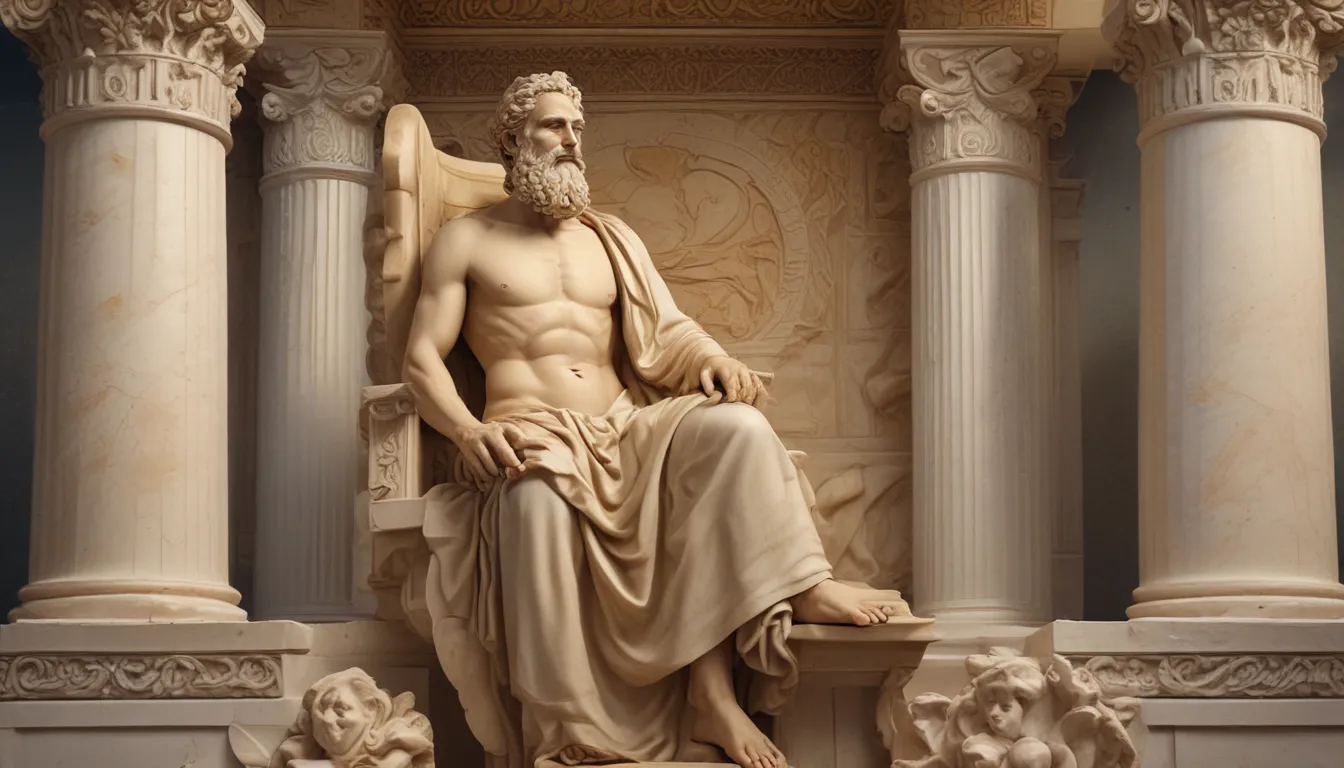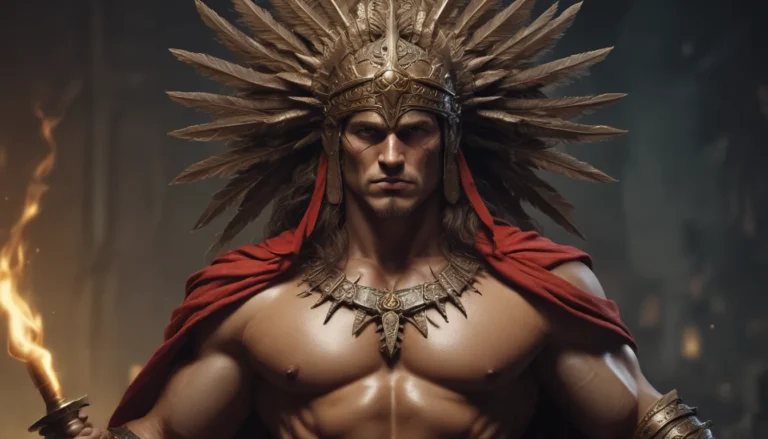The images in our articles may not match the content exactly. They are used to grab your attention, not to show the exact details in the text. The images complement the text but do not replace it.
Welcome to the captivating world of Empedocles, an ancient Greek philosopher and poet whose legacy continues to inspire scholars to this day. In this article, we will delve into 8 fascinating facts about Empedocles that shed light on his life, beliefs, and enduring impact. From his theories on the elements to his mysterious end, each fact offers a glimpse into the mind of a visionary thinker who made significant strides in understanding the natural world.
Unraveling the Mysteries of Empedocles:
Empedocles, born around 490 BC in ancient Greece, was a renowned philosopher and scientist whose contributions to fields such as physics and medicine continue to resonate. He is best known for his theory of the four classical elements – earth, air, fire, and water. These elements formed the basis of his metaphysical and scientific worldview, setting him apart as a pioneering thinker of his time.
Embracing Love and Strife:
In Empedocles’ philosophy, the dynamic interplay of love and strife played a crucial role in the creation and destruction of the universe. Love united the elements, fostering harmony and unity, while strife led to separation and discord. This concept not only influenced later philosophers like Plato and Aristotle but also laid the groundwork for understanding the forces that shape our reality.
The Concept of Reincarnation:
Empedocles delved into the idea of reincarnation, believing in the transmigration of souls and the cyclical nature of existence. He posited that souls undergo rebirth after death, with moral choices determining their future incarnations. This belief in the eternal journey of the soul left a profound impact on religious and philosophical thought for centuries to come.
A Poet at Heart:
Apart from his philosophical and scientific endeavors, Empedocles was celebrated for his poetic works, including the renowned poem “On Nature.” Through his poetry, he artfully intertwined his philosophical musings with vivid imagery, captivating his audience with the beauty and depth of his thoughts.
Fashioning an Iconic Image:
Empedocles was not only known for his intellectual pursuits but also for his distinctive fashion sense. Often seen wearing extravagant attire such as a bronze breastplate and a purple robe, he sought to embody his divine status as a philosopher and command respect through his unique style.
The Enigma of His End:
The circumstances surrounding Empedocles’ death remain cloaked in mystery and speculation. One account suggests that he met his demise by throwing himself into the fiery crater of Mount Etna, believing in his godlike invincibility. However, the truth behind this fateful act remains a subject of debate and conjecture.
A Lasting Influence:
Empedocles’ ideas reverberated through the corridors of intellectual history, influencing later philosophers and thinkers. His theories on the four elements provided a foundation for Aristotle’s understanding of matter, while his concepts of love and strife found resonance in various philosophical and religious systems.
Legacy Amidst Centuries:
Despite the passage of time, Empedocles’ legacy endures, captivating and inspiring scholars and intellectuals to this day. His profound insights into the nature of reality and the interconnectedness of all things continue to fuel philosophical discourse, ensuring that his contributions remain a vital part of the intellectual landscape.
Exploring Empedocles’ Trail:
Empedocles’ legacy echoes the voices of other great philosophers who have shaped our understanding of the world. From the medieval insights of John Duns Scotus to the enduring relevance of Plato’s teachings, each thinker has left an indelible mark on the realm of philosophy. By journeying back to Ancient Greece, we immerse ourselves in a time of unparalleled intellectual growth and discovery, where the brilliance of minds like Empedocles illuminated the path of knowledge.
Personal Queries Answered:
-
Who was Empedocles?
Empedocles was an ancient Greek philosopher and scientist known for his theories on the four elements and the cyclical nature of existence. -
What were Empedocles’ main contributions?
Empedocles made significant contributions to fields such as physics, astronomy, and metaphysics, shaping our understanding of the natural world. -
What is the theory of the four elements?
Empedocles’ theory posits that all matter is composed of earth, air, fire, and water, constantly interacting to create the diversity of the world. -
How did Empedocles influence future philosophers and scientists?
Empedocles’ ideas on love, strife, and the eternal cycle of birth and death inspired later thinkers like Aristotle and paved the way for modern scientific methodologies. -
What is Empedocles’ enduring legacy?
Empedocles’ profound insights into the interconnectedness of all things and the mysteries of existence continue to captivate and inspire scholars, ensuring that his legacy remains vibrant in philosophical discussions.
As you delve into the labyrinth of philosophical musings left behind by Empedocles and his contemporaries, remember to embrace the spirit of curiosity and exploration that drives the pursuit of knowledge. Each fact, each theory, each idea is a stepping stone towards a deeper understanding of the world and our place within it. Join us on this journey of discovery, where the echoes of ancient wisdom reverberate through the halls of time, inviting us to unravel the mysteries of existence and embrace the enduring legacy of visionary thinkers like Empedocles.






